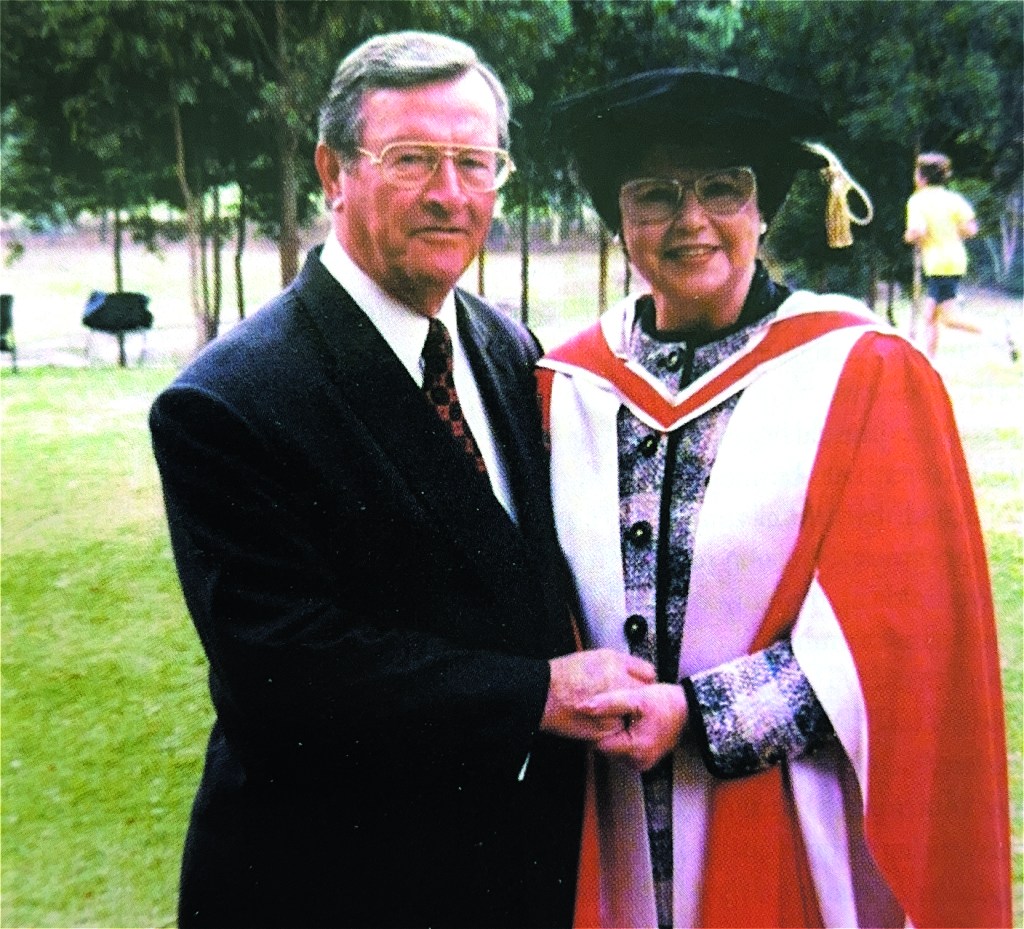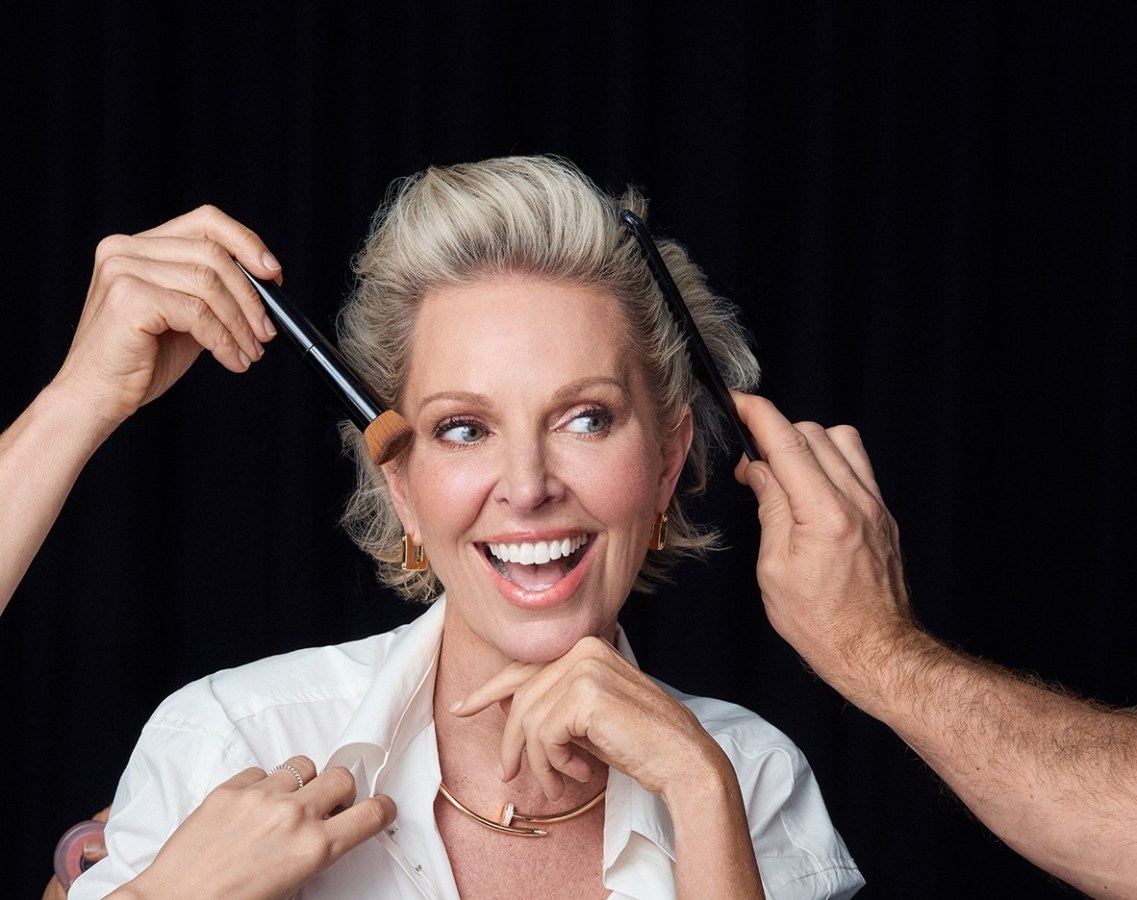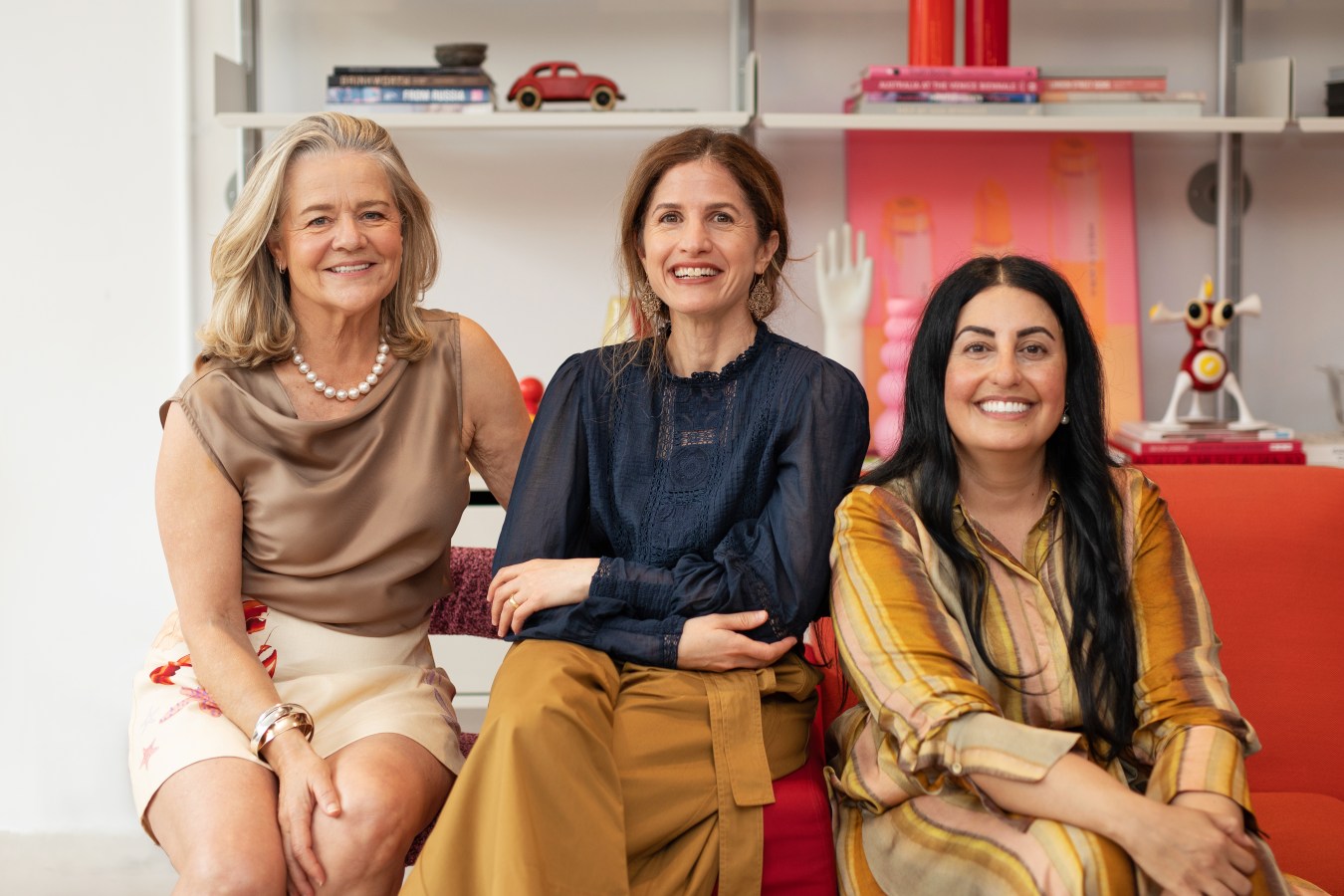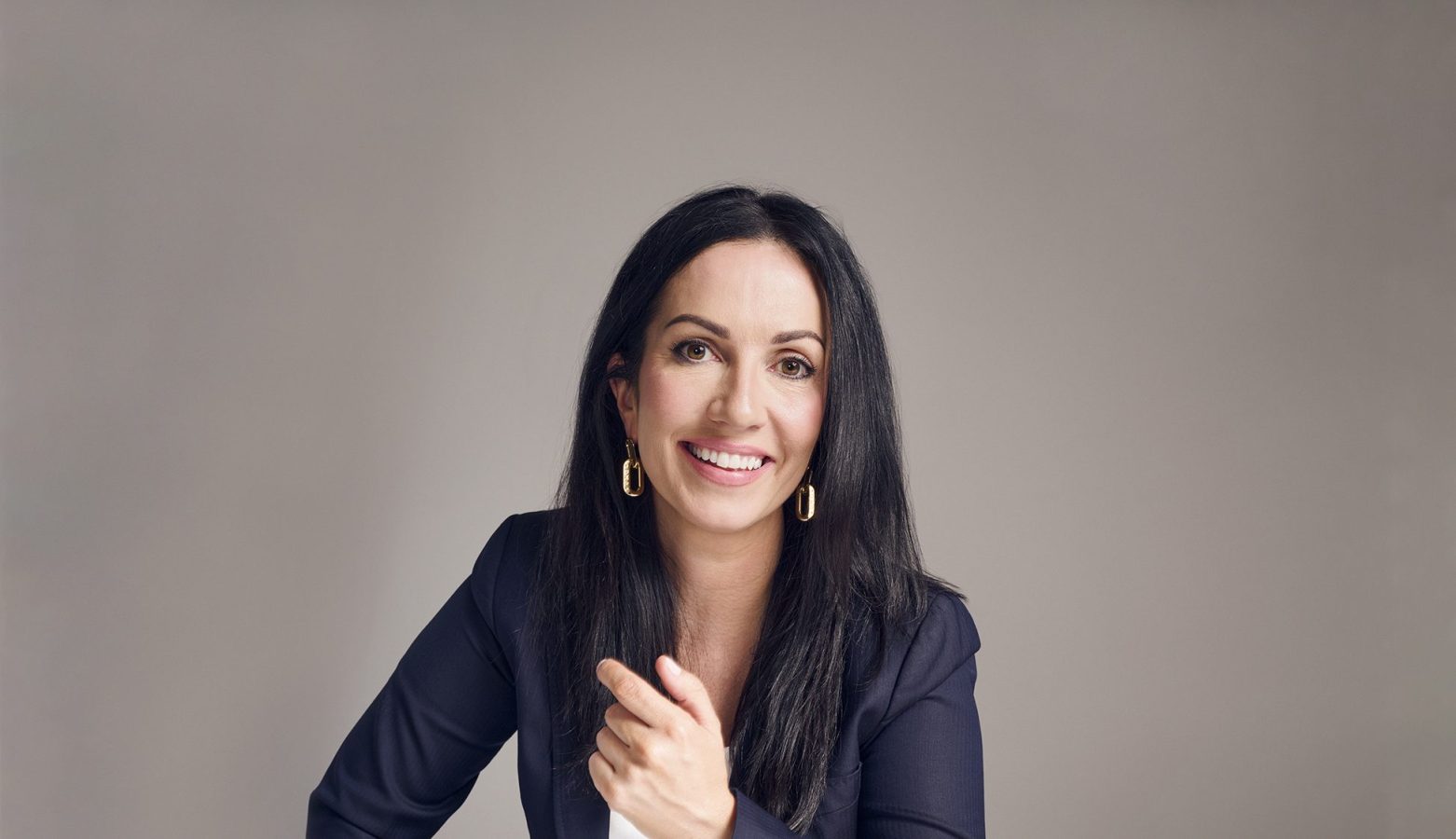Imelda Roche blazed a trail as a female founder long before the term was commonplace. Now 90, the Nutrimetics pioneer reflects on building a beauty empire and pulling off an entrepreneurial feat in post-war Australia.

Born in 1935, Imelda Roche always knew her life story would be about more than family – it would be about building an empire. “It was just embedded in my very being that life has to be better than this for women,” she says. “It isn’t just about being a house drudge and having all the responsibility of raising children, almost alone.”
The determined second-eldest daughter grew up in Waverley, a suburb in Sydney’s Eastern Suburbs, watching her mother work herself to the bone. “From the time I was in my early teens, I had a feeling that life had to be better than the life I saw my mother lead,” she says, sitting in an armchair in her Double Bay penthouse.
“She worked from 7 am until 3.30 pm at the Glassworks, then was a barmaid from 4 pm until 6 pm. She got home at 7 o’clock at night to her five children and then had to be up again at 6 am the next day.”
Seventy-some years after that teenaged epiphany, Roche looks back with pride on the NutriMetics direct-selling empire she began building in 1968, bought the global rights to in 1991, scaled across 20 countries, hit $250 million in annual turnover, and then sold to the Sara Lee Corporation in the US in 1997 for an undisclosed sum.
Twenty-eight years after selling NutriMetics, Imelda is quick to give credit for its existence to her late husband Bill, who she lauds as being unwavering in his support of her ascent through the entrepreneurial glass ceiling.
“He was one of the few men born in the 1930s who was prepared to work beside a woman as a full partner. He was ahead of his time, and I would never have been able to do what I ultimately was able to do without Bill being beside me,” she says.

In 1950s Australia, a woman’s independence was not recognised socially or financially. “It was impossible for women to get a loan unless you had a man beside you who would be responsible for it on your behalf,” says Imelda.
“We tried on three occasions, and I could have been wallpaper. I didn’t even have the attention of the bank manager’s eyes. He wasn’t the least bit interested in anything I’d have to say, even though we were talking about a business that is going to be primarily directed to women, by women.”
The Roches, then an engaged couple, decided early on that NutriMetics would be a partnership with a clear division of duties. “I told Bill that we’re not going to second-guess one another. We’re going to divide the responsibilities. I’m in charge of the front end. I’ve got to build that and bring the dollars through the front door. Once I do, you take charge of the total back end.”
“And I said that I’m never going to bother wasting my time going to a bank manager with you again. Because I sit there of absolutely no use, so you’re in charge of those sorts of financial decisions.”
It was a formula that worked, both at home and at the company’s headquarters in Sydney. Imelda built a ‘field force’ of direct-selling NutriMetics agents, and Bill took care of the entity’s financial end.
“It became a very substantial company,” she says. “And lots of Bill’s friends would ask me, well, who’s in charge? I said, well, Bill is. He’s the head of the household; he looks after all the finances. And I always maintained that.”
Nutritional cosmetics
Bill may have been the head of the household, but it was Imelda who spotted the gap in the market and pushed the NutriMetics concept forward.
In 1968, California-headquartered company Con-Stan wanted to expand its wares into the Australian market.
“I happened to see an advertisement in the Sun newspaper for an American company looking for management to set up a direct-selling business in Australia. And I thought, okay, I’d like to know about that. Yes,” she says.
At that time, she was in her early 30s, with four children, and had a keen sense for the appetite of 1960s women from a previous business she and Bill had created, direct-selling dresses in Sydney.

The downfall with that company was the overhead from paying employees to sell. In Con-Stan, she recognised a business model that enabled salespeople to make commissions and for the company to minimise its labour overhead.
“They had a product range of cleaning products, fashion, vitamin products, and skin care, which was all formulated from natural ingredients. It had no animal content whatsoever; it was all natural. I was quite taken with that and the fact that they didn’t employ people,” she says.
Imelda was convinced after a meeting in Sydney with Lee Trent, the head of the California-based business. Getting her husband on board took a little longer.
“I went home to tell Bill, ‘You’ve got to come and meet this man; we’re going to have to do this.” He said to me, ‘’Are you mad? Do you know how many skincare brands there are in chemist shops and department stores?’ I said, ‘Bill, trust me, this has a story like no other.’”
Imelda prevailed.
“After quite a few hours of him saying that’s a silly idea, et cetera. I said, ‘No, you’re going to come with me’, she says. “I used to tell the story that I almost took him by the scruff of the neck to meet Lee Trent. I didn’t have to say another word. Lee Trent charmed him
immediately. ”
The Roches pushed full steam ahead.
“I was absolutely smitten that you didn’t pay the people selling a salary – they were independent entrepreneurs,” says Imelda. “The Con-Stan model was to have people build their own businesses. They didn’t have to make a financial investment. Only their time, commitment and effort.”
The Roche’s initial move was to have $6,000 of Con-Stan products released from the Sydney Port. With that, the Australian division of Con-Stan was born. Imelda monitored traction and iterated the product offerings.

“We bought in the cleaning products for a while,” she says. “They only lasted about three months. I said that we don’t need to be sidetracked with that – same with the nutritional products.”
It was decided that the real value was in nutritional cosmetics, and Imelda zeroed in on the beauty sector. But the name of that product line had to change. “I didn’t like the first syllable being ‘Con’, so I told Lee Trent, we’ll call it NutriMetics in Australia because that’s what we’re selling – nutritional cosmetics.”
The heydays of the 90s
By the late 1980s, NutriMetics had set up its Australian headquarters on a 12,000-square-metre site in Balmain, and it was growing at an annual clip of 15% to 20%. That success carried into the early 1990s when Bill and Imelda bought the global rights to the business from Lee Trent.
By 1995, Imelda had been awarded an Order of Australia medal, and NutriMetics had 100,000 consultants spruiking its wares across Australia – more sales agents than US-based direct-selling company Amway had locally.
The Roche’s NutriMetics brainchild was the largest direct-selling company in the country. Forty per cent of the organisation’s global revenue originated in Australia. Repeat purchases accounted for 80% of sales. Imelda’s idea was to train her field force to create an environment where people wanted to buy.
“There’s only one way you do that,” Imelda told her first sales consultants, later known as ‘disciples.’
“You’re going to have to fall in love with the product you’re offering somebody else. Buy the product, use it, and be convinced because what you’re going to offer your prospective clients is benefit and value.”

Another point of differentiation in the direct-selling, at-home ‘party’ like sales atmosphere was a no-questions-asked return policy.
“Anybody who bought NutriMetics had a money-back guarantee. If they used the product and found it did not offer benefit and value, even if they’d used the last skerrick out of the jar, we would replace it with something else or give them their money back. There was nobody else doing that. It gave our consultants the confidence to sell to their mother, sister, and next-door neighbour.
“The total responsibility was with the company to make sure we were providing products that offered benefits and value. It was a conversation, not a sales pitch.”
The rotating head and the powerful neck
Imelda acknowledges that the business consumed her and Bill’s life and was constantly discussed at home and during the workday.
“Bill would say that my wife and I work 27 hours a day, eight days a week. My children and their children got sick of hearing about NutriMetics. Unfortunately, it was our whole focus and concentration in many ways,” she says.
“I was working with people to build major companies. I had to know everything about their life challenges and families and how we could offer the kind of support and encouragement they needed.”
As her public presence grew, Imelda held strong to the separation of church – her front end of the business – and state – Bill’s back-end domain.
“Everybody that worked with us knew that if they didn’t get the answer they wanted from me and they tried to go to Bill – who was a much easier touch for the girls – I would say, ‘Bill, that’s not your area of decision’.”
Bill handled it well, according to Geoff Mulham, who worked closely with the couple in the 1980s.

“People always used to ask me who do you think is really the success? And it was the two of them together. They were a dynamic partnership, very different in their skill sets and what they did, but greatly complemented one another,” says Mulham.
The couple had a natural rhythm evident at public events and behind closed doors.
“In meetings, Bill would push Imelda to the forefront and say, she kind of runs the show here. Now, in reality, they did it together, and he was most gracious. When you saw them behind the scenes, I can remember Imelda often deferring to Bill, whose title was the managing director. They would often joke on stage and have very funny moments about who was in charge, whose turn it was to talk,” recalls Mulham.
As for who the more ambitious force was between the two, the former marketing director of Nutrimetics said they egged each other on.“She was self-driven. And I think they drove each other. Bill was probably one of the biggest influences in her life.”
“Don’t try and emasculate the men,” Imelda says that she advises all women. “He is the head of the household.”
With her characteristic genteel charm, she explains how a marriage between two ambitious go-getters can work.

“If you think about it, everything that happens in the head – the health of it, the ability to breathe, blood flow, oxygen going to the brain – it all first has to pass through the neck.
“If any sensible woman thinks it through, she can become the neck. So, really it is her in control of where her husband directs his attention. You do it very, very gently. But, it is the neck that directs the head.”
Innovating an independent, incentivised female sales force
Imelda had a finely tuned, efficient strategy to get blokes on board NutriMetics.
“When husbands were uncooperative, I would ask both husband and wife to come in and chat with me. When they arrived, I’d ask the husbands to stay with me and offer the wives to go and talk shop together,” she says.
“Then I would tell them how well their wives are doing within NutriMetics and the next possibilities – that when she qualifies to go to an international seminar, you wouldn’t be left behind. You would stay at the best hotel in New York as well.”
The carrot of a new family car was also an incentive.
“We had one of Australia’s largest fleets of corporately owned cars. We would bring the salesperson, her husband, and her family in for a big celebration. Bill would hand the car keys to the husband on stage and a bottle of champagne. I would put a sheet of flowers in the arms of the consultant. The message to him was that your support for what your wife is doing is crucial, and this is a family car. It isn’t just for NutriMetics work; it is for the family. That was the subtle sort of unspoken message.

“Our best earners in the late 1980s and the 1990s were earning $300,000 and $400,000 a year,” says Imelda.
The key to that kind of success was leading an army of salespeople that would sell to their friends and family.
“Consultants could have organisations of five or six or 7,000 people throughout Australia and the world,” she says.
The Roche approach to packaging, componentry, and people
One of the things that set NutriMetics apart was it’s aesthetics.
“Bill designed componentry that you would be thrilled to have on display in your bathroom,” says Imelda. “It was comparable to any French product, and he made that a focus and a priority.”
Geoff Mulham, now CEO of the industry body Direct Selling Australia, recalls Bill’s love of packaging and components.
“He had a wonderful eye for product development. He worked on a lot of the aesthetics of the business, which was traditionally often the female role, but that was his love – the packaging and the branding.”
Mulham reflects on the time he spent working with the Roches with admiration. “Bill, he was everyone’s best supporter and best friend. He was just an inspirational guy, quite quiet and very humble. When you’d say, how are you, Bill? He’d say, ‘You know, I don’t know how I could be any better.’”
Mulham says the duo’s influence on direct selling in Australia is still felt. “People still defer to Imelda as the matriarch of the business. It’s a very collegiate industry, and Imelda is lauded as a pioneer when we have our gatherings. They all know her, know of her, and defer to her. Women particularly – as well as men – look to her as an inspiration.”
And that is everything Imelda has ever wished for.
“Mothers who were principally homemakers, their principal focus and responsibility was their home and children,” she says. “NutriMetics was a wonderful vehicle to earn extra income to bring into the family. “We built a sense of confidence in hundreds of women. And many went on to do other incredible things.”
The Roche Group property empire
After selling NutriMetics to the Sara Lee Group in 1997, Bill and Imelda Roche invested in a vast property empire. The Roche Group is now run by their sons Dominic and Damian Roche. The company oversees residential, tourism and agricultural assets in Queensland and NSW, including 4000 hectares earmarked to be developed into residential communities and supporting infrastructure. The family firm also owns a 13,000-hectare cattle station near Armidale, NSW which has capacity for 16,000 head of cattle.

Other assets include the Calypso Bay marina and residential development north of the Gold Coast, Harrington Waters, a 172-hectare development for 1100 homes 40 minutes south of Port Macquarie, and a construction company called Riba Constructions. Over the past 5 years, the Roche Group bought up $37 million in waterfront real estate in Palm Beach consolidating it into a 3079 square metre estate, one of the largest in the area.
After retiring, Bill Roche dedicated his time to developing the 12-hectare Hunter Valley Gardens in Pokolbin. The gardens opened to the public in 2003 and are visited by 300,000 people each year. The Roche Group also owns the Hunter Valley Gardens Shopping Village, the Roche Estate outdoor amphitheatre, the Tallawanta Vineyards, Harrigan’s Hunter Valley, and the Mercure Hotel in Pokolbin.
Bill Roche died in June 2022, and is survived by Imelda, his four children, Clare, Damian, Dominic and Angela, and 13 grandchildren.
Forbes Women is mobilising a network of female business owners, entrepreneurs and changemakers who support and empower each other. Become a member here.



